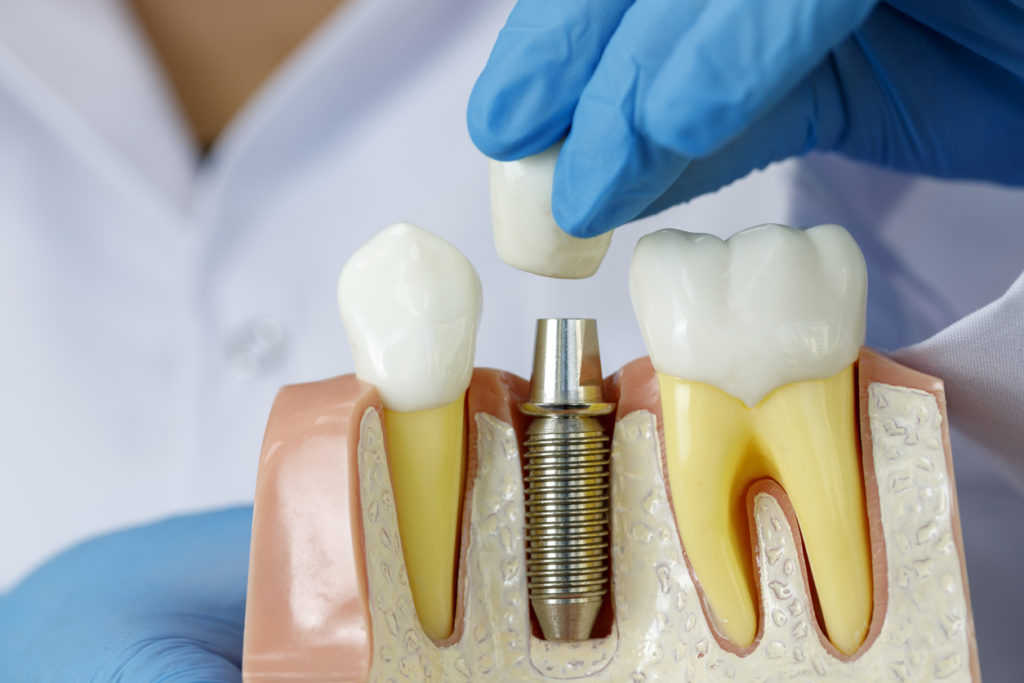Getting dental implants is a surgical procedure that requires anesthesia to ensure the patient’s comfort and safety. However, the type of anesthesia used can vary depending on several factors, such as the number of implants being placed, the complexity of the procedure, and the patient’s preferences.
Types of Anesthesia for Dental Implant Surgery
There are three main types of anesthesia that can be used for dental implant surgery:
- Local Anesthesia
Local anesthesia is the most common type of anesthesia used for dental implant surgery. It involves injecting a numbing agent, such as lidocaine or novocaine, into the area around the implant site. This numbs the area and prevents the patient from feeling any pain or discomfort during the procedure.
Local anesthesia is typically used for simple cases involving one or two implants. It allows the patient to remain fully conscious and aware during the procedure, but they will not feel any pain or discomfort.
- Conscious Sedation
Conscious sedation, also known as “twilight sedation,” is a type of anesthesia that induces a state of relaxation and drowsiness while still allowing the patient to remain conscious and responsive. It is often used for more complex dental implant procedures or for patients who experience anxiety or fear during dental procedures.
There are different levels of conscious sedation, ranging from minimal sedation (where the patient remains awake but relaxed) to moderate sedation (where the patient may slur their speech and have little memory of the procedure).
Conscious sedation can be administered through various methods, such as oral sedatives (pills), intravenous (IV) sedation, or inhaled sedation (nitrous oxide, also known as “laughing gas”).
- General Anesthesia
General anesthesia is the deepest form of anesthesia, where the patient is completely unconscious and unaware of the procedure. It is typically reserved for extensive dental implant procedures, such as full-mouth reconstructions or cases involving complex bone grafting.
Under general anesthesia, the patient is essentially “put to sleep” and will have no memory or awareness of the procedure. This type of anesthesia is administered by an anesthesiologist and requires close monitoring of the patient’s vital signs throughout the procedure.
Factors Influencing the Choice of Anesthesia
The choice of anesthesia for dental implant surgery depends on several factors, including:
- Number of Implants: The more implants being placed, the more likely it is that conscious sedation or general anesthesia will be recommended to ensure the patient’s comfort during the longer procedure.
- Complexity of the Procedure: If the implant surgery involves additional procedures, such as bone grafting or sinus lifts, the dentist or oral surgeon may recommend a deeper level of anesthesia for the patient’s comfort and safety.
- Patient Preferences and Anxiety Levels: Some patients may prefer to be fully unconscious during the procedure, while others may feel more comfortable remaining awake but relaxed. The dentist or oral surgeon will discuss the patient’s preferences and anxiety levels to determine the most appropriate anesthesia option.
- Medical History and Overall Health: Certain medical conditions or medications may affect the patient’s ability to tolerate certain types of anesthesia. The dentist or oral surgeon will review the patient’s medical history to ensure the chosen anesthesia is safe and appropriate.
Preparing for Dental Implant Surgery
Regardless of the type of anesthesia used, it is essential for patients to follow their dentist’s or oral surgeon’s instructions carefully before and after the procedure. This may include:
- Avoiding certain medications or supplements that could interfere with the anesthesia or increase the risk of bleeding.
- Fasting for a specified period before the procedure if conscious sedation or general anesthesia is being used.
- Arranging for a responsible adult to accompany them to and from the appointment if sedation or general anesthesia is administered.
- Following post-operative instructions for proper healing and recovery, such as taking prescribed medications, avoiding certain foods or activities, and attending follow-up appointments.
Conclusion
While dental implant surgery is a surgical procedure, patients have various options for anesthesia to ensure their comfort and safety. Local anesthesia is often sufficient for simple cases, while conscious sedation or general anesthesia may be recommended for more complex procedures or patients with higher anxiety levels.
It is essential for patients to discuss their concerns and preferences with their dentist or oral surgeon, who will consider all relevant factors to determine the most appropriate anesthesia option. By following the dentist’s or oral surgeon’s instructions and taking the necessary precautions, patients can undergo dental implant surgery with minimal discomfort and a successful outcome.
